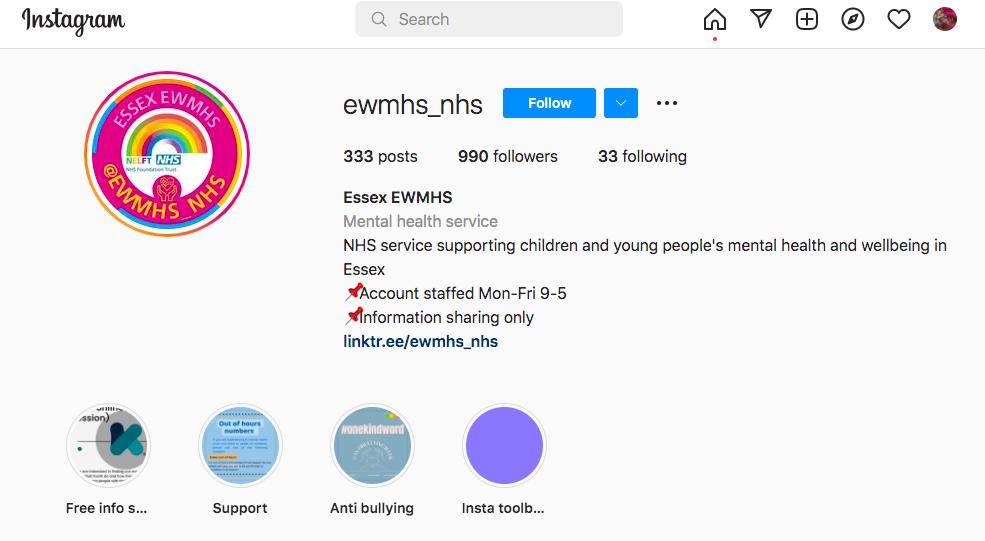





Issue 008: Monday 31st October Keeping our comm Safeguarding at Honywood School Welcome to the October edition of our monthly safeguarding newsletter Each month we provide an update containing reminders about how we approach safeguarding at Honywood as well as useful links to support families out of school - many links we share each month so they are easy to find for you. If you have a question about safeguarding our hope is that our monthly bulletins will be able to provide the answer or at least some signposting to where you may get the answer This month our focus is Prevent Need to Talk, share a concern or ask a question? Who can learners talk to at School? ● Learning Group Leader ● Cohort Leaders ● Pastoral Leaders ● Class teachers ● Learner Reception ● Learning SupportAssistants ● Learner WellbeingApp on iPad ● Senior LeadershipTeam ● Mrs Nichols - Safeguarding Lead ● Mrs Hickford - Deputy Safeguarding Lead ● Mr Caygill - Deputy Safeguarding Lead ● Mr Robertson -Attendance & Welfare Officer Mrs Nichols Mrs Hickford Mr Caygill Mr Robertson
Learner Information Please refer to the Honywood Wellbeing app on your school iPad, link below https://sites google com/honywoodschool com/learnerwellbeing/home If you need Wellbeing & Mental Health support out of school, please contact: YOUNG MINDS textYM to 85258, or https://youngminds.org.uk/find help Kooth your online mental wellbeing community https://wwwkooth com/ Child andAdolescent Mental Health Service 0300 300 1600 to get in touch directly. For the out of hours crisis support, please call the general NELFTswitchboard on 0800 953 0222. and ask for the CAMHS Crisis Support Service Childline 08001111 Weekly Bullying and Child on ChildAbuse reporting form All learners and parents receive a weekly email link and reminder that if they have any concerns about the behaviour of any learners in school that could be considered bullying and/or child on child abuse, they may report it using the following link: https://docs google com/forms/d/e/1FAIpQLSfs8npY9aDQcY3WsRttFcI5PB0NGPaBgKR4aRdtWdr HlogNWQ/viewform If you have any questions about the form before completing it please feel free to email me scaygill@honywoodschool.com Similarly if you have any feedback regarding the structure/questions of this form please do share this too as the form could evolve over the coming weeks with any feedback shared Parents/Carers For support and information please contact: For information about support for children, young people and families please see the Essex County Council website If you are a parent or carer, child or young person and you need support, you can phone 0345 603 7627 and ask for the Children's Line Useful General Resources Safeguarding Policy https://www.honywoodschool.com/attachments/download.asp?file=265&type=pdf KCSIE September 2022 https://wwwgovuk/government/publications/keeping-children-safe-in-education--2 Responding to Harmful Sexual Behaviours Policy https://wwwhonywoodschool com/attachments/download asp?file=318&type=pdf
Prevent Prevent is a community safeguarding programme that deals with safeguarding and supporting those vulnerable to radicalisation Prevent is 1 of the 4 elements of CONTEST, the Government’s counter terrorism strategy. It aims to stop people becoming terrorists or supporting terrorism. What is Terrorism? Terrorism is defined in section 1TerrorismAct 2000 as the use or threat of action designed to: ● influence the government or an international governmental organisation; or ● intimidate the public, or a section of the public; made for the purposes of advancing a political, religious, racial or ideological cause; and it involves or causes: ● serious violence against a person; ● serious damage to a property; ● a threat to a person’s life; ● a serious risk to the health and safety of the public; or ● serious interference with or disruption to an electronic system What is radicalisation? Radicalisation is defined as the process by which a person comes to support terrorism and forms of extremism leading to terrorism HM Government, Prevent Strategy, June 2011,AnnexA: Glossary ofTerms What is extremism? Extremism is defined as vocal or active opposition to fundamental British values, including democracy, the rule of law, individual liberty and mutual respect and tolerance of different faiths and beliefs. It includes calls for the death of members of armed forces, whether in the UK or overseas HM Government, Prevent Strategy, June 2011, AnnexA: Glossary ofTerms What does Prevent do? 1 Responds to the ideological challenge we face from terrorism and aspects of extremism, and the threat we face from those who promote these views 2 Provides practical help to prevent people from being drawn into terrorism and ensure they are given appropriate advice and support 3 Works with a wide range of sectors (including education, criminal justice, faith, charities, online and health) where there are risks of radicalisation that we need to deal with
The
statutory duty, which came into force on 1 July 2015, has prompted a significant step
in the delivery of
away from being drawn
to
- schools
Extremism can come in many forms
with
providing early intervention to protect and divert
organisations At the heart of Prevent
Prevent addresses all forms of extremism but
on the basis of the greatest threat to our
common form of extremism tends to be
story below is something that can easily happen in
John was often in trouble at school for low level disruption and felt he was being left behind
a friend told him
going to a right wing group meeting, John went along to
was soon invited
join
Facebook groups and started sharing
inviting a teacher along to an extremist rally
rallies
was referred to the Prevent programme by his college He was appointed a
known as an Intervention Provider) who helped increase John’s self confidence
realised he wanted to make some changes in his life
this help
able
move
from extremism
Prevent
forward
Prevent work across all public sector
is safeguarding children and adults and
people
into terrorist activity.
continues
ensure resources and effort are allocated
national security Prevent
and the local context
In Essex the most
associated
right wing groups. John’s
schools:
When
he was
support him He
to
closed
extreme right wing posts on social media and attending
After
he
specialist mentor (also
and he
With
and support he was
to
away
The Prevent Duty has 4 themes: 1 RiskAssessment: School staff must understand the risks affecting children and young people in their local area, with the assistance of the LocalAuthority and the Police, and identify those children who may be vulnerable to radicalisation This requires school staff to be alert to changes in a child or young person’s behaviour and exercise professional judgement as to whether they are at risk. 2 StaffTraining: The Home Office has developed an interactive facilitated ‘Workshop to Raise Awareness of Prevent’(WRAP) aimed at training frontline staff such as teachers on how to identify children at risk. 3 ITPolicies: Schools must take steps to keep children safe online such as through appropriate filtering of school web-page content 4 Working in Partnership: Local Safeguarding Children Boards (LSCBs) must coordinate local agencies to safeguard and promote the welfare of children LocalAuthorities can also provide dedicated Prevent coordinators to work with schools in high priority areas. Radicalisation - the signs to look out for The following behaviours listed here are intended as a guide to help you identify possible radicalisation: Outward appearance ● Becoming increasingly argumentative ● Refusing to listen to different points of view
● Unwilling to engage with students who are different ● Becoming abusive to students who are different ● Embracing conspiracy theories ● Feeling persecuted ● Changing friends and appearance ● Distancing themselves from old friends ● No longer doing things they used to enjoy ● Converting to a new religion ● Being secretive and reluctant to discuss their whereabouts ● Sympathetic to extremist ideologies and groups Online behaviour ● Changing online identity ● Having more than one online identity ● Spending a lot of time online or on the phone ● Accessing extremist online content ● Joining or trying to join an extremist organisation “Preventative education is most effective in the context of a whole school or college approach that prepares pupils and students for life in modern Britain and creates a culture of zero tolerance for sexism, misogyny/misandry, homophobia, biphobic and sexual violence/harassment…These will be underpinned by the school/college’s behaviour policy and pastoral support system, as well as by a planned programme of evidence-based RSHE delivered in regularly timetabled lessons and reinforced throughout the whole curriculum.” Online safety advice for parents and carers Keeping your children safe online is just as important as keeping them safe in the real world. This can be challenging for parents when technology develops and changes so quickly This page brings together information and guidance to help you understand the risks children face online, and how to keep them safe. To help you support your children to be safe online, we recommend taking a look at these websites: ● Internet Matters: a website raising parents' awareness about the risks from online radicalisation ● Safer Internet: a useful resource for parents and carers about keeping your children safe online ● EducateAgainst Hate: a great starting point for answers to questions you as parents may have about the risk of radicalisation ● Parent Info: help and advice for families in a digital world ● ACTEarly: The CounterTerrorism Policing website with useful information and advice to help if you're worried that a friend or loved one may be at risk of radicalisation ● Child Net: advice on keeping your children safe online Report it

If you see extremist material online you can report it directly to the CounterTerrorism Internet Referral Unit More information Online safety ● Keeping under fives safe online (Childnet) ● Thinkuknow ● Keeping children safe online (NSPCC) Filtering and parental control advice ● Parental controls and privacy settings guides (Internet Matters) ● Parental controls offered by your home internet provider (UK Safer Internet Centre) Social networking safety ● Social media guides (UK Safer Internet Centre) Mental Health Support Resources for Parents Exam Stress. The following link covers a wide range of tips to keep students mentally healthy SupportingYour Child during Exam Time (Young Minds) ExamTime & Exam Stress | Parents GuideTo Support Young Minds https://youngminds org uk/ EWMHS Emotional well being and mental health service have recently launched a new Instagram account to provide advice and support to young people experiencing mental health issues. Please encourage your children to follow the account where they will be able to access early intervention advice and support https://wwwinstagram com/ewmhs nhs/ M h
Safe and reliable advice about young people’s mental health, created by experts and parents together: https://wwwmindedforfamilies org uk/young people NHS Mental Health Charities directory: Mental health charities and organisations Parent zone - 10 mental wellbeing apps for all the family: https://parentzone org uk/article/10-mental-wellbeing-apps-all-family Gov.uk COVID 19: guidance on supporting children and young people’s mental health and wellbeing Headstogether - Changing the conversation on mental health: https://wwwheadstogetherorg uk The Mix Essential support for under 25s: https://www.themix.org.uk/ Safeguarding Support Resources for Parents Safeguarding when learning to drive We are aware that from time to time, concerns are raised by post 16 learners and their parents in Essex about inappropriate conduct of driving instructors We have been given the following information to help to safeguard those accessing driving lessons: https://www.gov.uk/learn to drive a car https://wwwgovuk/find-driving-schools-and-lessons (all instructors on the list will have had a DBS check and passed all the qualification tests to become an instructor) https://wwwgovuk/complain about a driving instructor Parent zone - County Lines: https://parentinfo.org/article/county lines what is it and who is at risk? Parent zone SleepAdvice: https://parentzone.org.uk/article/how sleep easy during global pandemic Parent line Family Support: Parentline family support and bullying helpline DomesticAbuse support: #ReachIn Welfare Support Resources for Parents Essex Welfare Service (EWS) The EWS, a service to help vulnerable people in the community in need of support and unable to access it at this time: https://essexwelfareservice org/ Parents are able to ‘self refer’ if they are experiencing difficulties EWS Contact details:
Phone: 0300 303 9988 Email: provide essexwelfareservice@nhs net Website: https://essexwelfareservice org/ Opening hours: Monday to Friday, 8am to 7pm Saturday and Sunday, 10am to 2pm Livewell Essex There is a real need to collectively find solutions that contribute towards wellbeing in order to reduce the cost to health and social care. The Livewell campaign is designed to engage communities, families and individuals and to provide information about all that is on offer in Essex to improve health and wellbeing All 13 Essex Local Authorities and our partners have come together to collaborate on the health and wellbeing agenda and work towards achieving better health outcomes for people across Essex Household Support Fund ECC has received funding from central government to support vulnerable families and adults this winter There are a range of initiatives in place to ensure help with household food and utility bills, essential items and emergency situations are provided for To find out more about how to access this support please follow the link for access points where parents, young adults and adults can be signposted to www.essex.gov.uk/money debt and benefits/household support fund Key Contacts in School Please see the key contact list below to support you to address any concerns Leadership Team Mr Saunders Headteacher jsaunders@honywoodschool.com Mr Munro Deputy Headteacher jmunro@honywoodschool com Mr Caygill Deputy Headteacher scaygill@honywoodschool com Mrs Downes Assistant Headteacher pdownes@honywoodschool com Mrs Hickford Deputy Headteacher jhickford@honywoodschool.com Miss McPhail AssociateAssistant Head amcphail@honywoodschool com Mr Smith AssociateAssistant Head dsmith@honywoodschool com Mr Williams AssociateAssistant Head jwilliams@honywoodschool.com Safeguarding, welfare and support team Mrs Nichols Safeguarding Officer knichols@honywoodschool.com Mr Robertson Attendance Concerns crobertson@honywoodschool com Mrs Loydall Medical concerns medical@honywoodschool com Cohort Leaders Cohort 7 Mrs Reece ereece@honywoodschool com Cohort 8 Mr Hall shall@honywoodschool.com Cohort 9 Ms Ward tward@honywoodschool com Cohort 10 Ms Martin amartin@honywoodschool com Cohort 11 Mr Scott dscott@honywoodschool com SEND team
Mrs Vaughan SENCO cvaughan@honywoodschool com
Mr Wood Deputy SENCO (Autism Hub)mwood@honywoodschool com







